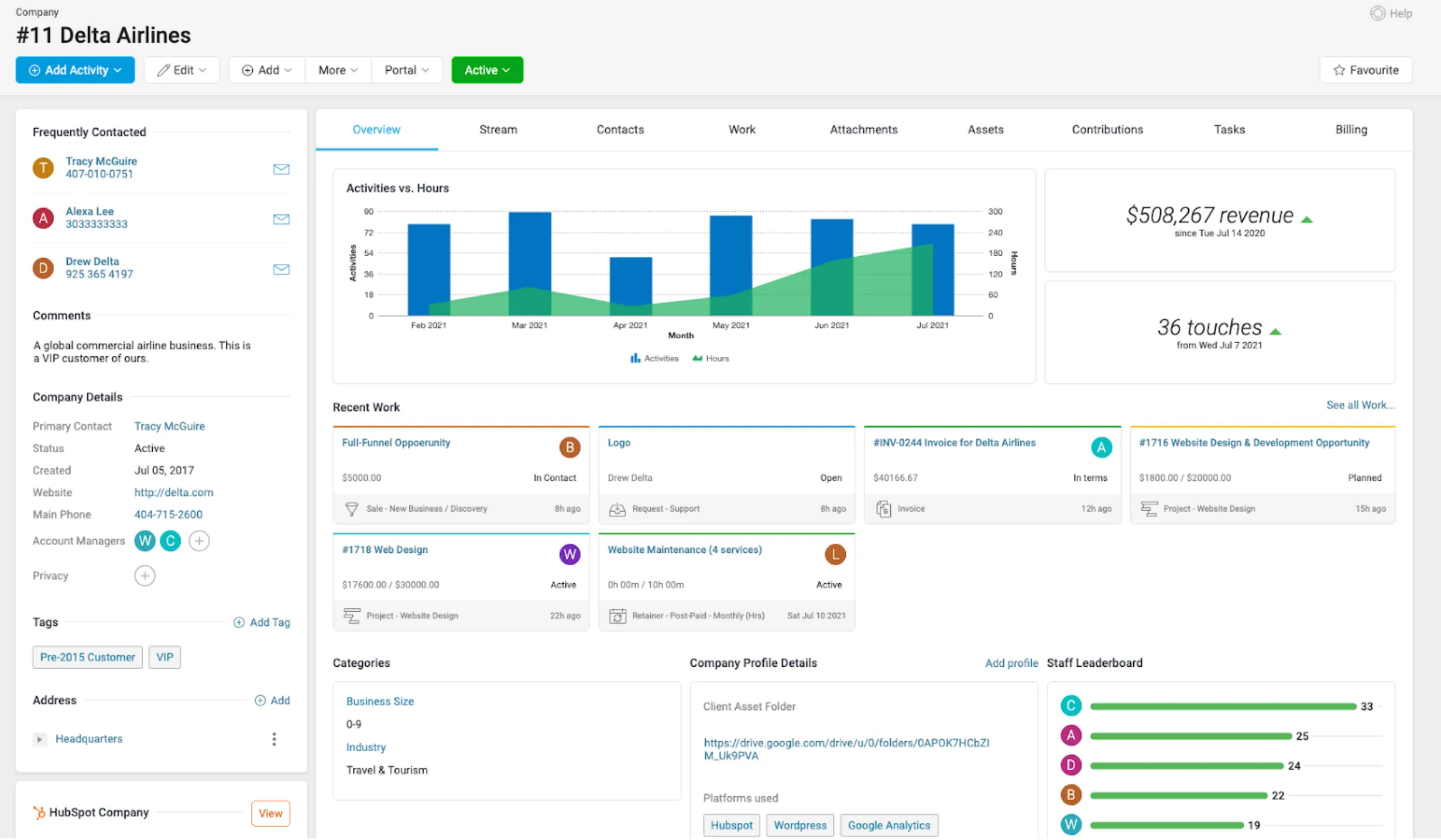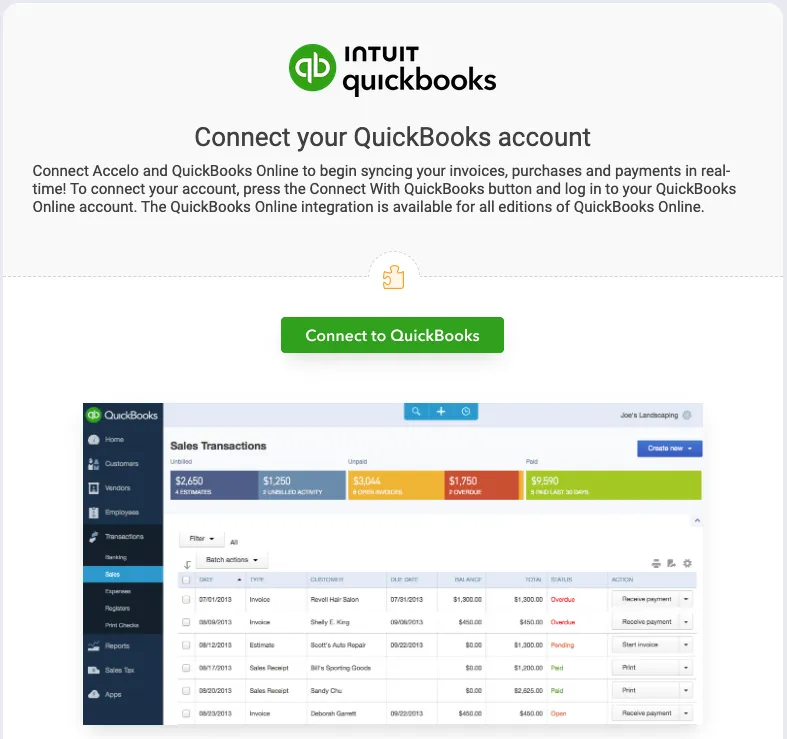Accelo Acquires Forecast, Adding Depth to AI and Capacity Planning Capabilities
Read the Press Release



QuickBooks is accounting software that helps small to medium-sized businesses manage the financial aspect of their organization. With QuickBooks, businesses can generate and send invoices, accept payments, keep track of income and expenses, manage inventory and payroll, and generate accounting reports.
QuickBooks has a desktop version and a cloud-based version — QuickBooks Online. With QuickBooks Online, you can log in with any supported device from anywhere in the world.
While QuickBooks will help you keep track of the financial aspects of your business, it can’t do everything for you. For instance, while being a powerful accounting software, QuickBooks will not help you manage and follow up on leads, track your billable time, or forecast client profitability.
This is why you need to integrate your CRM with QuickBooks.
Customer relationship management (CRM) is the process through which a company or other organization manages its relationships with customers, usually by analyzing vast amounts of data.
Today's business landscape is shifting from being company/product-centric to being customer-centric. With a reliable CRM, you can deliver consistent, streamlined, and profitable client service easily and manage your tasks, issues, and data all in one platform, in real-time.

Without QuickBooks CRM integration, your business will be sitting on invaluable data that can help you increase sales and drive revenue for your business. For example, if you have leads that have requested a quote but haven't taken any further steps, you can send personalized emails to remind them of the solutions you provide, answer any objection they may have, and convert them to paying customers.
Integrating your CRM with QuickBooks can be the catalyst that'll unlock better customer management, increase customer satisfaction, and by extension, increase customer lifetime value.
QuickBooks is not a CRM - it’s accounting software. Sure, you can use it to send invoices, receive payments from customers, and view customers' transaction history, but this doesn't build rapport with your clients.
Rather, Intuit recommends that businesses get a CRM and integrate it with QuickBooks because QuickBooks doesn't perform core CRM functions like sales management, marketing automation, and customer service management.
So, can you try to use QuickBooks as a CRM? Yes. Should you? No.
QuickBooks CRM integration means linking this accounting software with your CRM so that you can get a single view of client work, invoices, and payments. This data can then be used for follow-ups, to deliver personalized service, for better marketing automation, and for ultimately linking your time to your invoices.

A QuickBooks CRM integration will provide the following benefits:
Accelo’s CRM allows you to manage your contacts from prospect to close in one integrated platform.
From the moment you start working with a client, Accelo’s QuickBooks integration empowers your team to instantly report time on the tickets they’re working on for fast approval, billing, and create contracts to manage their ongoing services.
Need a CRM that will seamlessly integrate with your accounting software? Sign up for a demo of Accelo today and see how it can boost productivity and profitability across your service business.

